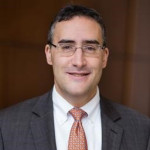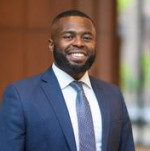Law School adds new faculty for 2020-21
For this academic year, the University of Pennsylvania Carey Law School has added three standing professors and welcomes six additional distinguished teachers, lawyers, and leaders who will enhance our academic program and educate and mentor our students.
The new hires are in addition to the eight standing faculty members who have joined the Law School in the previous four years. They bring a wealth of scholarly and experiential expertise and embody a range of diverse perspectives and methodologies in their teaching and research, and four of them are graduates of this Law School.
Standing Faculty

|
Kimberly Kessler Ferzan L’95 is the Earle Hepburn Professor of Law and Co-Director of the Institute of Law & Philosophy. At the Law School, she will teach Criminal Law, Evidence, and a seminar on the theory and practice of criminal law. She is co-Editor-in-Chief of the journal Law and Philosophy and serves on the editorial boards of Legal Theory, Criminal Law and Philosophy, the Stanford Encyclopedia of Philosophy, and Oxford Studies in Political Philosophy. She was elected to the American Law Institute in 2015. Ferzan writes in criminal law theory. She has co-authored two books, co-edited three volumes, and authored over 50 book chapters and articles. She received the American Philosophical Association’s Berger Memorial Prize in 2013 for “Beyond Crime and Commitment: Justifying Liberty Deprivations of the Dangerous and Responsible” (Minnesota Law Review, 2011), and was selected for the 2006 Stanford/Yale Junior Faculty Forum for “Beyond Intention” (Cardozo Law Review, 2008). Her recent works, “The Reach of the Realm,” and “#BelieveWomen and the Presumption of Innocence: Clarifying the Questions for Law and Life” are forthcoming in Criminal Law and Philosophy and NOMOS: Truth and Evidence, respectively. Before joining the Law School faculty in 2020, Ferzan was the Harrison Robertson Professor of Law and the Joel B. Piassick Research Professor of Law at the University of Virginia, where three different graduating classes recognized her with their highest teaching honor at graduation. Prior to her time at Virginia, Ferzan was a member of the faculty at Rutgers Law, where she was twice awarded Professor of the Year and received the Chancellor’s Award for Teaching Excellence. Ferzan has been competitively selected to serve as a Visiting Professor at the London School of Economics, an International Visiting Fellow at the University of Warwick’s Institute for Advanced Studies, and a Laurance S. Rockefeller Fellow at the Princeton University Center for Human Values. |
|---|---|

|
Karen Tani L’07 GR’11 is the Seaman Family University Professor and holds a joint appointment with the Department of History in the School of Arts and Sciences. She is the University of Pennsylvania’s 24th Penn Integrates Knowledge University Professor. In 2020-21, Tani will co-teach a 1L elective course on Law and Inequality with Presidential Assistant Professor of Law Shaun Ossei-Owusu. A celebrated legal historian, Tani’s work addresses poverty law and policy, disability, administrative law, federalism, and rights. Her book, States of Dependency: Welfare, Rights, and American Governance, 1935-1972 (Cambridge University Press, 2016), won the 2017 Cromwell Book Prize from the American Society for Legal History. The book sheds new light on the nature of modern American governance by examining legal contests over welfare benefits and administration in the years between the New Deal and the modern welfare rights movement. More recent work has explored historical examples of “administrative constitutionalism” and the history of disability law and sexual violence and rights. Before joining the Law School faculty, Tani was a Professor of Law at the University of California, Berkeley. She was the first graduate of the University of Pennsylvania’s JD/PhD program in American Legal History and clerked for Judge Guido Calabresi of the U.S. Court of Appeals for the Second Circuit. |

|
Assistant Professor of Law Yanbai Andrea Wang’s scholarship focuses on the emerging system of transnational civil litigation and arbitration, including procedural coordination across borders and institutional change in the global governance of health. At Penn Carey Law, Wang will teach Civil Procedure and courses in the area of transnational litigation. Her most recent work, Exporting American Discovery, won the American Society of International Law David D. Caron Prize and is forthcoming in the University of Chicago Law Review. This article presents the first comprehensive study of foreign discovery requests, demonstrating that U.S. judges routinely serve as gatekeepers of evidence for foreign disputes. Wang’s finding that such requests are granted at rates as high as 95% calls into question whether U.S. judges perform that gatekeeping role effectively. Before joining the Law School faculty, Wang was a Thomas C. Grey Fellow and Lecturer in Law at Stanford Law School and an Associate Fellow at Stanford University School of Medicine’s Center for Innovation in Global Health. She is a graduate of Princeton University and Stanford Law School and holds a PhD from Oxford University in International Relations. She clerked for Judge M. Margaret McKeown of the U.S. Court of Appeals for the Ninth Circuit. |
Distinguished Visitors and Extended Faculty for the 2020-2021 Academic Year

|
Benjamin Jealous Benjamin Jealous, the former President and CEO of the National Association for the Advancement of Colored People (NAACP), comes to the Law School as a Distinguished Visiting Fellow and will teach a course on Leadership and Racial Justice and work with students in mentorship settings. He is currently the President of People for the American Way, “a progressive advocacy organization founded to fight right-wing extremism and build a democratic society that implements the ideals of freedom, equality, opportunity, and justice for all.” Jealous was the Democratic candidate for Governor of Maryland in the 2018 election. In 2008, Jealous was chosen as the youngest-ever president and CEO of the NAACP, and in 2013, the Baltimore Sun named him “Marylander of the Year,” honoring his work on marriage equality, death penalty abolition, and DREAM Act advocacy. He was also a partner at Kapor Capital, and previously served as director of the U.S. Human Rights Program at Amnesty International. Jealous is a graduate of Columbia University and Oxford, where he was a Rhodes Scholar. He has previously taught at the University of Pennsylvania and Princeton University. |
|---|---|

|
Sandra G. Mayson Sandra Mayson, Assistant Professor of Law at the University of Georgia School of Law, will be an Assistant Visiting Professor of Law at Penn Carey Law for the 2020-21 academic year. Sandra G. “Sandy” Mayson teaches Criminal Law, Evidence, and Criminal Justice Reform. She has served as a Research Fellow with the Quattrone Center for the Fair Administration of Justice at Penn and as a Furman Academic Fellow at the New York University School of Law. Mayson’s scholarship explores intersections between criminal law, constitutional law, and legal theory, with a focus on the role of risk assessment and preventive restraint in the criminal justice system. Her scholarship has appeared in the Yale Law Journal, Stanford Law Review, Duke Law Journal, Boston University Law Review, Boston College Law Review, Notre Dame Law Review, Georgia Law Review, and the international journal Criminal Law and Philosophy, among other places. Before entering academia, Mayson represented indigent clients in criminal proceedings and trained public defenders on the immigration consequences of criminal conviction. After law school she worked as a trial attorney and Equal Justice Works Fellow at Orleans Public Defenders in New Orleans, a legal fellow at the American Civil Liberties Union of Pennsylvania, and a judicial clerk for Judge Dolores K. Sloviter L’56 on the U.S. Third Circuit Court of Appeals and for U.S. District Court Judge L. Felipe Restrepo in the Eastern District of Pennsylvania. Mayson received her BA in comparative literature summa cum laude from Yale University. She earned her law degree magna cum laude from New York University, where she was an articles editor of the New York University Law Review, an Institute for International Law and Justice Scholar, a Florence Allen Scholar, and a member of the Order of the Coif. |

|
Jennifer E. Rothman In Spring 2021, Jennifer Rothman will join Penn Carey Law as a Visiting Professor where she will be teaching will be teaching Trademarks and a seminar on the Right of Publicity. Rothman is nationally recognized for her scholarship in the intellectual property and constitutional law fields and is the leading expert on the right of publicity. Her book, The Right of Publicity: Privacy Reimagined for a Public World, was published in 2018 by Harvard University Press. The book has been described by reviewers as “indispensable” and the “definitive biography of the right of publicity.” Rothman’s essays and articles regularly appear in top law reviews and journals. Her most recent article, “The First Amendment and the Right(s) of Publicity” is forthcoming in the Yale Law Journal. She also created Rothman’s Roadmap to the Right of Publicity, www.rightofpublicityroadmap.com, the go-to website for right-of-publicity laws and commentary. She holds the William G. Coskran Chair and is Professor of Law at LMU Loyola Law School in Los Angeles. Rothman is an elected member of the American Law Institute and an adviser on the Restatement of the Law (Third) of Torts: Defamation and Privacy. She is also an affiliated fellow at the Yale Information Society Project at Yale Law School. Rothman joined Loyola after serving on the faculty at the Washington University in St. Louis School of Law. She is the 2019-2020 recipient of the David P. Leonard Faculty Service Award for outstanding teaching and service. |

|
Jim Sandman L’76 Jim Sandman has joined Penn Carey Law School as a Distinguished Lecturer and Senior Consultant to the Future of the Profession Initiative (“FPI”). A vocal advocate for change to the regulatory framework governing lawyers, Sandman has already used his role with FPI to argue in support of reforms designed to expand access to justice that recently took effect in Utah. He will work to advance similar efforts in other jurisdictions as the regulatory reform movement accelerates and will develop related projects through FPI that focus on developing new approaches to delivering legal services that are more accessible and useful to small business owners and individuals across the income spectrum. Sandman’s new role with the Law School will also provide students the opportunity to learn from him, through his teaching courses like Professional Responsibility and Leadership in Law, and through mentorship. Sandman is President Emeritus of the Legal Services Corporation (“LSC”), which he led from 2011 to 2020. LSC is the single largest funder of civil legal aid for low-income Americans in the nation. Sandman practiced law with the firm of Arnold & Porter LLP for 30 years, including 10 years as the firm’s managing partner. He is also a past president of the 100,000-member District of Columbia Bar and a former general counsel for the District of Columbia Public Schools. Sandman is currently Chair of the American Bar Association’s Task Force on Legal Issues Arising Out of the 2020 Pandemic. He serves on the Board of Advisors to the Institute for the Advancement of American Legal Services (“IAALS”) and is a member of the American Law Institute. He previously served on the ABA’s Commission on the Future of Legal Services, on the Law School’s Board of Overseers, and as Chair of the Standing Committee on Pro Bono Legal Services of the District of Columbia Circuit Judicial Conference. Sandman has received the University of Pennsylvania Carey Law School’s Alumni Award of Merit and its Howard Lesnick Pro Bono Award, as well as the District of Columbia Bar’s highest honor, the Justice William J. Brennan Award. Sandman is a summa cum laude graduate of Boston College and a cum laude graduate of Penn Carey Law, where he served as Executive Editor of the University of Pennsylvania Law Review and was elected to the Order of the Coif. He began his legal career as a law clerk to Judge Max Rosenn L’32 of the U.S. Court of Appeals for the Third Circuit. |

|
Leo Strine L’88 Former Delaware Supreme Court Chief Justice Leo E. Strine, Jr. L’88 will continue his relationship with the Law School in a new role as the Michael L. Wachter Distinguished Fellow in Law and Policy. A longtime successful adjunct professor and participant in the Law School’s intellectual life around corporate governance and other topics, Strine will bring his unique expertise and experience in this new role to the discussion around crucial issues facing business and financial law and policy and will work with Law School colleagues to develop new and innovative programming, both in-person and online. Chief Justice Strine joined the Delaware Court of Chancery as a Vice Chancellor in 1988, later serving as a Chancellor in 2011 and becoming the eighth Chief Justice of the Delaware Supreme Court in 2014. During his decades of service on the bench, he became widely acknowledged as a preeminent expert in corporate law and governance. He has written hundreds of judicial opinions, including the Delaware Supreme Court decision in Rauf v. State, which held Delaware’s death penalty statute to be unconstitutional. He has also authored over 25 articles and book chapters. His most recent work, Development on a Cracked Foundation: How the Incomplete Nature of New Deal Labor Reform Presaged Its Ultimate Decline, was recently published in the Harvard Journal on Legislation. In conjunction with deepening his relationship with the Law School, Strine holds a joint affiliation with the Ira M. Millstein Center for Global Markets and Corporate Ownership at Columbia Law School, where he is the Ira M. Millstein Distinguished Senior Fellow. Chief Justice Strine is a member of the American Law Institute and currently serves as an advisor on the project to create a restatement of corporate law. He is also Counsel at the New York law firm of Wachtell, Lipton, Rosen, and Katz. Before joining the bench, Chief Justice Strine served as Counsel and Policy Director to Delaware Governor Thomas R. Carper and practiced corporate litigation with the firm of Skadden, Arps, Slate, Meagher & Flom. He clerked for Judge Walter K. Stapleton of the U.S. Court of Appeals for the Third Circuit and Chief Judge John F. Gerry of the U.S. District Court for the District of New Jersey. |

|
Miguel Willis Miguel Willis will join the Law School’s Future of the Profession Initiative (“FPI”) as Innovator in Residence. In this role, Willis will teach and mentor students interested in leveraging technology to expand access to legal services. Willis will work closely with FPI leadership and offices across the Law School, including Career Planning & Professionalism and the Toll Public Interest Center, to raise awareness of emerging career opportunities that a changing legal profession and advancing technology create for new law school graduates. Willis is also the inaugural Presidential Innovation Fellow at Law School Admission Council (“LSAC”), where he oversees the Access to Justice Tech Fellows Program, a fellowship program in which law students spend the summer working on a range of innovative projects and initiatives aimed at improving the civil legal system. Willis, who also focuses on growing professional networks for traditionally underrepresented professionals in both law and technology, was named a “Legal Rebel” by the American Bar Association in 2018 and was recognized as the 2016 National Jurist Law Student of the Year. While earning his undergraduate degree in political science from Howard University, Willis worked at the Department of Justice. At Seattle University School of Law, he was President of the Black Law Students Association and served on the Board of the National Black Law Students Association. Willis has also worked with the Alaska Court System to help expand access to justice for low-income rural communities and co-developed CaseBooker, a marketplace app that reduces the cost of textbooks for law students. |
Other standing faculty hired since 2016 include:

|
Assistant Professor of Law Maggie Blackhawk joined Penn in 2017 from Harvard Law School where she was a Climenko Fellow & Lecturer on Law. She researches and teaches in the fields of constitutional law, federal Indian law, and legislation. |
|---|---|

|
Previously Professor of Law at UCLA Law School, Professor of Law Allison Hoffman joined the Law School in 2017. Professor Hoffman is an expert on health care law and policy. Her work examines issues of regulating the health care market in the U.S. and social justice in health care. (JOINED FACULTY IN 2017 |

|
In 2017 Professor of Law David Hoffman joined Penn from the Beasley School of Law where he was the Murray H. Shusterman Professor in Transactional and Business Law. He employs a unique blend of contract law, financial law, economics and behavioral science in his research. Professor Hoffman’s work uses data-driven insights and behavioral analysis to understand contract law in the digital age, including digital contracts and fintech. |

|
James G. Dinan University Professor Herbert Hovenkamp is a preeminent and widely-cited expert on antitrust law. Before joining the faculty at the Law School in 2017, Professor Hovenkamp was the Ben and Dorothy Willie Chair at the University of Iowa College of Law. Elected to the American Academy of Arts and Sciences in 2007, in 2008 he won the Justice Department’s John Sherman Award for his lifetime contributions to antitrust law. |

|
Joining Penn in 2019 from Columbia University where he was an Academic Fellow, Presidential Assistant Professor of Law Sean Ossei-Owusu is an interdisciplinary legal scholar with expertise in legal history, criminal law and procedure and civil rights. His work sits at the intersection of law, history, and sociology. Professor Ossei-Owusu’s most scholarship investigates how the government provides services to the poor, specifically legal aid and health care.(JOINED FACULTY IN 2019) |

|
Specializing in corporate law and governance, Professor of Law Elizabeth Pollman has written extensively about corporate personhood and the constitutional rights of corporations, as well as startups, entrepreneurship, and law and technology. Joining Penn from Loyola Law School in 2019 where she was a Professor of Law, Professor Pollman’s most recent scholarship on the governance in start-up businesses is the beginning of a dialogue on this emerging area of research. (JOINED FACULTY IN 2020) |

|
In 2018 Assistant Professor Natasha Sarin joined Penn faculty from Harvard. Professor Sarin earned her JD from Harvard Law and PhD in Economics from Harvard University. Her research engages with both law and finance, concentrating specifically on financial regulation, consumer finance, and macroprudential risk management. |

|
Andrea Mitchell University Professor in Law, Political Science, and Business Ethics Beth Simmons joined Penn in 2016 from Harvard where she was the Clarence Dillon Professor of International Affairs. Professor Simmons is the twice winner of the Woodrow Wilson Award for the best book published in the US on government, politics, or international affairs. In 2009 Professor Simmons was elected to the American Academy of Arts and Sciences in recognition of her work on international law. |





